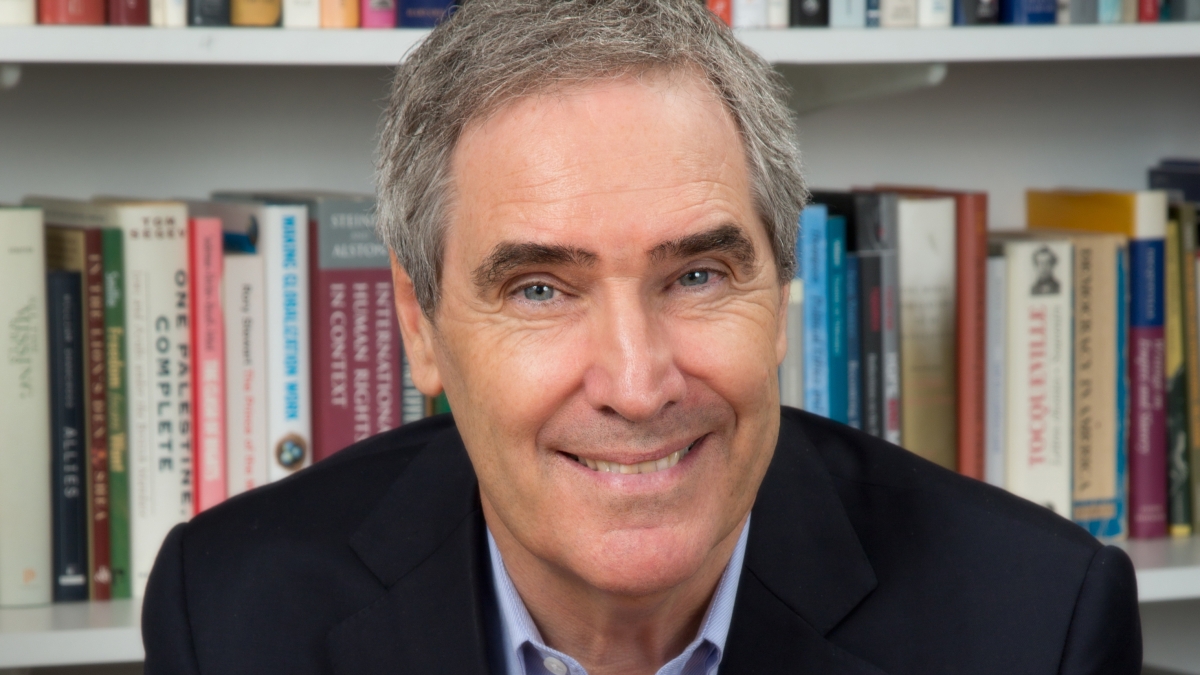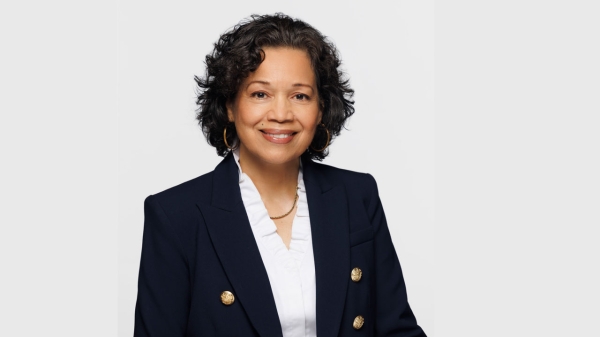Expert on war and the politics of human rights to address refugee crisis at home and abroad

Michael Ignatieff speaks Feb. 25 in the Center for the Study of Religion and Conflict's Alternative Visions speaker series at the Memorial Union in Tempe.
“The age of humanitarian intervention to protect civilians is not over, because civilians keep dying,” Michael Ignatieff wrote in 2014. Since then the worldwide numbers of people displaced from their homes has reached record levels, and the refugee crisis brought on by the war in Syria has escalated political and social conflict about the status of immigrants and refugees at home and abroad.
Michael Ignatieff will address these issues in a free public lecture titled “What Citizens Owe Strangers: Human Rights, Migrants and Refugees.” The lecture will take place at 7 p.m. Feb. 25, in the Memorial Union Ventana Ballroom on Arizona State University’s Tempe campus.
The lecture is part of ASU's Center for the Study of Religion and Conflict’s “Religion and Conflict: Alternative Visions” speaker series.
Ignatieff is a major thinker who has repeatedly been named one of the top 100 public intellectuals by Foreign Policy magazine. His widely read essays on political philosophy, ethics and international affairs have appeared in Foreign Affairs, the Washington Post, the New York Review of Books, the London Review of Books and the Journal of Ethics and International Affairs.
Currently the Edward R. Murrow Professor of Practice at Harvard University’s Kennedy School of Government, Ignatieff’s career has spanned academia, journalism and politics.
The native Canadian has served as an elected member and leader of the opposition in the Canadian parliament and was a well-known television and radio broadcaster in London, including producing a major documentary series titled “Blood and Belonging.”
This rich background deeply informs Ignatieff’s writing on war, human rights, terrorism, ethnic and religious conflict, and public policy throughout the world.
“With his profound intellect and concrete political experience as an elected official, Michael Ignatieff brings penetrating insight into the pressing problems of our day,” says John Carlson, acting director of the Center for the Study of Religion and Conflict and associate professor of religious studies.
“He has that rare ability to offer a 10,000-foot view of complex global problems even as both feet are firmly planted on the ground. Most importantly, he does it with eloquence, flair, and moral grit.”
In addition to his newspaper and magazine writing, Ignatieff is also the author of 17 books that engage critical issues of human rights, political philosophy and public policy. His book “Virtual War: Kosovo and Beyond” received the Orwell Prize in 2001, and he was a finalist for the 2004 Lionel Gelber Prize for “The Lesser Evil: Political Ethics in an Age of Terror,” based on his Giffords Lectures. Other key works include “Human Rights as Politics and Idolatry,” “The Rights Revolution,” and “The Needs of Strangers.” In his recently published “Fire and Ashes: Success and Failure in Politics,” Ignatieff draws lessons from his political career.
The Religion and Conflict: Alternative Visions speaker series brings nationally and internationally recognized experts such as Karen Armstrong, Andrew Bacevich, David Eagleman and Reza Aslan to campus to address the sources and dynamics of conflict and strategies for its resolution.
The series is supported by a grant from philanthropist John Whiteman.
For more information and to register for the lecture, see the event page.
The Center for the Study of Religion and Conflict is an interdisciplinary research unit of the College of Liberal Arts and Sciences that examines the role of religion as a driving force in human affairs.
More Law, journalism and politics

CBS News president to give keynote address at Cronkite School’s spring convocation
Ingrid Ciprián-Matthews, president of CBS News, will serve as the keynote speaker at Arizona State University’s Walter Cronkite…

School of Politics and Global Studies director's new book explores mass violence
Why do people commit atrocities and why are certain groups, including religious and ethnic, more vulnerable to large-scale…

ASU faculty contributing to improvement of Wikipedia
Many academics have a love-hate relationship with Wikipedia. While the website has information about almost anything you can…